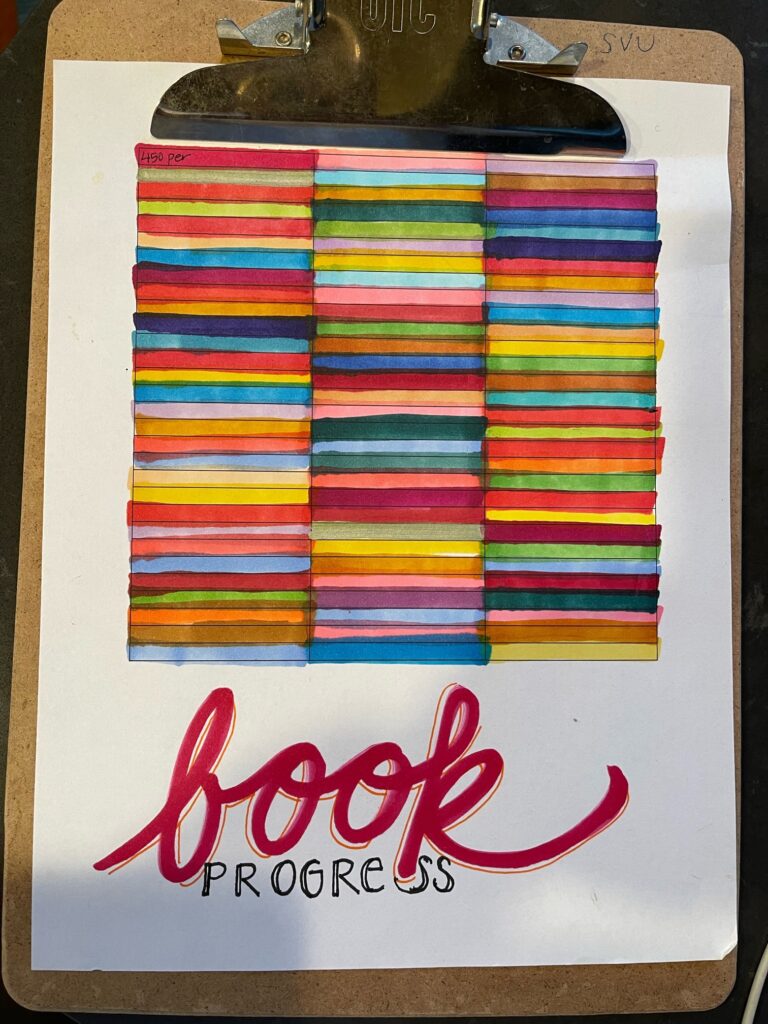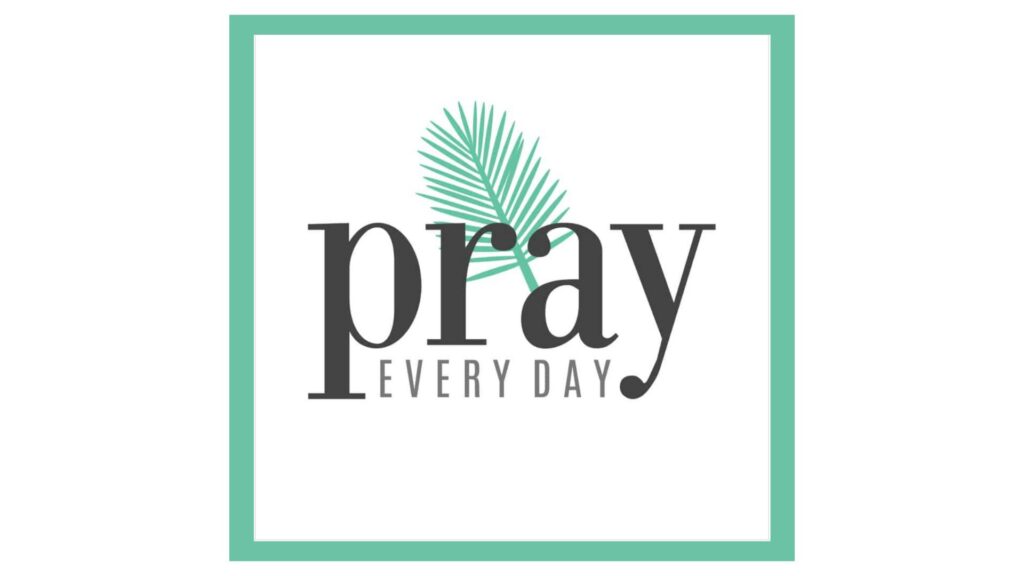
As the old chestnut goes, those who fail to plan can plan to fail. But in order to create a plan, you first need a goal. And authors need to set writing goals.
How do you set a motivating goal that’s realistic but not overwhelming and still challenges you to accomplish more?
One of the most prolific goal-setters I know is Mary DeMuth. She’s a bestselling author who has written more than 40 books. She’s a literary agent and a nationally acclaimed speaker.
I’ve asked her to share her reasons and methods for goal setting.
Why do authors need to set writing goals?
Thomas: Why do authors need to set goals? Can’t they just sit down and write?
Mary: No. Writing easily falls to the margins of your life if you don’t make it a priority. If you want writing to be a priority, you must schedule a time to do it. What’s scheduled gets done.
I have a rigorous schedule that allows me to produce about three books each year. I’ve been able to write so many books because I have set writing goals, established deadlines, and developed a work ethic before I was even published.
In the 1990s, before I was published, I would set goals for myself. I aimed to meet my deadlines early. That practice built a habit muscle. I have trained myself to start producing from the moment my fingers hit the keyboard, regardless of what is happening around me.
That ability came from planning, goal setting, and a volume of writing. Great writing doesn’t happen by sitting and thinking. Great writing comes through writing and having something to edit.
Thomas: That seems so secular and businessy. Setting goals that aren’t spiritual might sound secular to some Christian authors. Do Christian authors need to set writing goals?
Do Christian authors need to set goals?
Mary: I always think about when I’m on the other side of eternity. Hopefully, the Lord says, “Well done, good and faithful servant.” That’s what drives me.
If the Lord has given me a talent and equipped me to write, then my job is to write like the wind and to write in a way that brings Him honor.
If I squander that gift, I’ll feel sad, but not in a legalistic way. I’m writing out of my joy because I’ve been rescued by grace. It’s such a joy to put words on the page when I know I’m equipped and called. When I fulfill that calling, I feel joy knowing I’m doing exactly what the Lord has asked me to do. I’m not squandering the gift he’s given me.
Thomas: Jesus talked about planning in Luke 14. He basically says that before you join His Kingdom, you need to put together a plan. You need to count the costs to see if you really want to be a disciple. (See Luke 14:28-32.)
Jesus uses money and time as a metaphor for spiritual things, but the metaphor is instructive for authors. Authors don’t often count the cost of how much time is needed to write a book. Authors tend to run out of time and fail to finish their books because they didn’t make the necessary sacrifices.
Writing is typically the first thing that gets cut when life gets hard or circumstances change. Some authors say they’ll begin writing when “things get better.” I love that optimism, but that isn’t real life. Bad things and disruptions are always happening.
As soon as you get through your current “bad thing,” a different inconvenient circumstance will crop up.
Mary: Agreed. We need to view goal-keeping as a normative part of our writing careers, and we should exercise it like a muscle. I just returned from overseas and rejoined my Camp Gladiator gym. My muscles are sore today because even though I was running while I was gone, I wasn’t doing calisthenics.
Writing is similar. It’s like a muscle. When you’re away from it for a while, you need time and repetition to redevelop that muscle. Forming a consistent writing habit over the long haul will serve you well.
By the same token, once you have a writing habit, you can reverse engineer the writing goal you set and work backward toward it. You can tell an editor how long it will take you to write a book because you already know how many words you can write a day. If I have to write a book in two weeks, I can do it because I know how many words I can write in a day.
Part of this process is learning to treat writing like a business. You can’t squeeze your job into the margins. It’s your job, so you must dedicate time to writing and develop a habit.
Thomas: In business school, we learned about SMART Goals. SMART goals are surprisingly helpful for authors.

SMART is an acronym:
- Specific
- Measurable
- Ambitious
- Realistic
- Time-based
When all those elements are included in your stated goal, you’ll have a clearly defined destination and know where you’re headed. A SMART goal is a good goal.
The A (ambitious) and the R (realistic) can pull against each other. Your goal needs to be challenging, but it can’t be so ambitious that you automatically write it off. If your ambitious goal is to sell a million copies of your book this year, you’ll need a plan for selling about 100,000 copies per month. That may not be realistic if you only sold 20 copies in 2022. You’ll probably feel demotivated when you can’t sell 20 copies in your first month.
By the same token, you can’t just paint a red dot around where the arrow lands and describe what you’re doing now. That’s not goal-setting. That’s just describing the status quo.
The most useful aspects of a SMART goal are making it measurable and time-bound. Time-bound measurement separates a goal from a vague desire. When people say, “I want to write a book” or “I want to be published,” they’re stating a vague desire.
On the other hand, when someone says, “I want to write 5,000 words a day and finish my rough draft by October 10th,” they’re stating a measurable, time-bound goal.
Measurability allows you to keep score. A measurable goal is like a scoreboard in a game. If you glance at the scoreboard during a basketball game and see you’re down by two points, the scoreboard tells you the team needs to score more baskets. If you don’t have a scoreboard, the game becomes very demotivating.
Even in children’s sports where they don’t keep score, the kids keep score in their heads because it’s more fun and motivating to know how you’re doing.
Write Out Your SMART Goal
Thomas: Consider the five elements of a SMART goal, then write down several goals to set for your writing.
If you have a writer friend, you can each write down a goal and hold one another accountable. You’ll find that your next year will be more productive, and you’ll accomplish so much more, especially if you check in with one another.
Mary: I once read a book about writing things down. Their data showed that people who wrote down their goals were more apt to achieve them than those who have goals floating in their heads.
I was skeptical, so I did my own experiment. I always wanted a tattoo, so I wrote down, “Get a tattoo,” and within a week, I had a tattoo. I remember thinking, “It worked!” It’s a little tattoo that says “Jesus.” But still, I wrote it down, and it happened.
There’s something powerful about writing down your goals.
Thomas: Writing down the goals you set keeps you from inadvertently changing the goal down the road to make it easier to attain.
You may have begun with a goal of writing 1,000 words per day, but if you don’t write that down, you may remember it as 1,000 words per week. When you keep adjusting your goal to make it easier, it’s no longer ambitious. It’s no longer challenging you.
Besides a word-count goal, what other goals should writers consider setting for this next year?
Mary: I rely on the word-count goal every weekday. When I’m writing a nonfiction book, I aim for 2,000 words per day. That means in five weeks, I will have that nonfiction book written. It’s a daily goal as well as a weekly goal.
I like measuring by word count, but people prefer different methods of measurement. Some writers may want to produce one beautiful page of writing per day. That’s about 350 words that you’ll probably self-edit.
If your chapters are long, you might aim for one chapter per week over ten weeks. Novelists might consider two shorter chapters per week. Or you might say, “By August 24th, I will write a detailed book outline.”
You can state your writing goals in different ways; but when I’m on deadline, my go-to measurement is the word count.
I’ve created a tool that helps me track my progress. I insert a table grid into a Microsoft Word document where each cell in the table represents 1,000 words.
For example, if I’m writing a 50,000-word book, I create a table with 50 squares; and every time I write 1,000 words, I color in one square. I keep it on my desk, and I can see my progress.
It’s like magic.

Thomas: If you’ve ever written an item on your to-do list just so you could scratch it off, you know how motivating it is to physically mark your progress.
For most of human history, the evidence of work was very clear. You can see the difference when you work in the garden for a day. If you work on building a house for a day, you can see your progress. If you make shoes, you can count the pairs you make every day.
Historically, humans have seen physical evidence of the work they complete; and that’s very rewarding. We get deep satisfaction from a job well done.
But if you spend a day editing your book, it doesn’t look any different. Maybe you corrected 1,000 typos, but you don’t really see that. You can’t necessarily see the evidence of your work. You can start to feel like you’re not making any progress.
It may be that you didn’t do anything. Perhaps you thought you were writing all day, but you started researching on Wikipedia and then ended up on Facebook and Instagram. Suddenly you’re out of time and didn’t really do anything.
On the other hand, perhaps you made a lot of progress that you just can’t see.
Physically coloring the box or scratching something off your to-do list makes a difference in your sense of accomplishment. It sounds silly, but it works. And if it works, why not use it?
Mary: Sometimes it’s the simple things that we poo-poo that actually really work.
What marketing goals should authors set?
Thomas: In terms of marketing and money, what are some other goals writers should consider?
Mary: If you consider yourself a professional writer, then setting a financial goal is important. It’s not easy if you’re just beginning, but it helps you to work toward something.
For example, if you want to make $12,000 this year from your writing, you need to think through how you’ll meet that goal. Understand that entrepreneurs rarely earn exactly $1,000 in a month. Sometimes they make $200 in one month and $1,800 the next. You just never know, and you can’t control it.
But you can control what kind of questions you ask.
If you write books, have an agent, and are likely to get a contract this year, you can figure out whether you’ll hit your $12,000-per-year goal.
If you’re self-publishing and know you can earn $300 per month from book sales, you can start chipping away at that goal of $1,000 per month.
You can meet that financial goal in other ways too:
- Research ways you can be paid to advertise for others on your own website. Learn How to Diversify Your Income As an Author.
- Seek public speaking opportunities. Learn how to get more speaking engagements and How to Use Public Speaking to Change Lives and Build Your Platform.
- Create online courses to sell. Learn How to Adapt Your Book into an Online Course.
- Start a Patreon account, and build a membership to generate recurring income.
- Monetize your podcast with sponsorships or advertising. Learn How to Advertise Books on a Podcast.
Mary: Sometimes marketing gurus tell me I ought to do one thing and one thing alone. Unfortunately, I cannot make a living doing one thing because those single income streams often depend on gatekeepers.
I have to diversify if I want to have a creative business. I don’t want to rely on one source of income to make that $1,000 every month.
Thomas: I often quote Ecclesiastes 11:6, which says, “Plant your seed in the morning and keep busy all afternoon, for you don’t know if profit will come from one activity or another—or maybe both.”
For authors, writing a book is like working the fields. If the harvest is good, it can be really good; but if there’s a drought, all your work may come to nothing.
You may have done a great job planting (or writing); but if it doesn’t rain, the crop won’t grow.
That’s why you also do your afternoon activity. You don’t plow the fields in the afternoon. In the heat of the afternoon, you work in the shade doing something with your hands. It won’t make you rich, but it will help pay the bills.
How do goals trigger creativity?
Setting goals can trigger creativity. When you know your goal is to make $1,000 per month, you’ll figure out how to make it happen. It’s a specific goal, not a vague desire like “I want to be a professional author.” You know how much you need to make to be a professional author, and you can create a plan to accomplish that goal.
Maybe you need to write your books in the morning and do editing for other people in the afternoon. Editing allows you to earn money while honing your skill.
Building a website for another author helps you improve your own website. Editing for another author helps you see how to improve your own writing. Both jobs help put food on the table regularly and reliably. You’re not just waiting for money to fall from the heavens someday.
God will give you the strength to work. He will partner with you, and you get to co-labor with Christ if you’re in the Kingdom. It’s an amazing blessing to co-labor with Christ, as Allen Arnold shared in his interview on this show; but you still have to labor.
Some authors rebel against hustle culture, and some of that attitude is good. It’s wrong to glorify work, rather than glorifying God in our work; but that rebellion can go too far.
The sixth commandment doesn’t say to rest on Sundays. It says we should work six days per week and rest on Saturday. We are expected to work. Adam and Eve were in the garden in perfection without sin, and they were working.
Work is righteous. Focusing too much on work is bad, but that doesn’t mean work itself is bad.
Mary: I agree. I love to work. When you’re in your sweet spot of doing what God has called you to do, you’ll get so much joy that work doesn’t feel like work.
If your work feels like stress and doom, maybe you need to pray about whether you’re in the right place. Maybe you’re a writer; but you realize you only like to write short form, and you’ve been forcing yourself to write a long-form book.
Perhaps it’s the opposite. Maybe you’re writing Instagram posts, but you get no joy from it, and you know you could write a whole book with joy.
Exegete that a little bit. Listen to yourself, your regrets, and your dread. Those things might be telling you something that would be a sweet course correction for you.
Input Goals vs. Output Goals
Thomas: Output goals are more stressful than input goals. For example, getting published with Zondervan is an output goal because Zondervan ultimately decides whether to publish you. That’s stressful because you have so little control over it.
An input goal might be having a goal of pitching Zondervan. Better yet, aim to pitch five publishers each week for the next three weeks. You can control that goal because you can input the work and scratch it off your list. Then you can leave the results up to God.
Output goals can be very demotivating because you feel like you’re not in control of your life. Set goals over what you can control. You can control the inputs. You can’t control the outputs.
So set a goal to plant your fields. You may have a goal for the yield of the harvest, but you must hold that harvest goal lightly. If it doesn’t rain, you have some consolation in knowing that you did your part and sowed the seed.
Evaluate what you can control and what you just need to pray about.
Mary: Those output goals are also called blocked goals because they can be blocked by somebody else. I call input goals production goals because you can choose to do a certain number of weekly tasks.
In the early stages of your writing career, you’ll want to query five or ten agents each week. You can control that. You might decide to research ten agents who represent your genre.
Why should writers set relationship goals?

Another production goal, or input goal, might be relational. I’ve had so many positive things happen to me as a result of pursuing relationships and connecting with people.
Attending a face-to-face conference would be a relationship goal. You’ll make relationships with people. When I was writing for online and print magazines, I made a relationship with one of the editors. One day she needed a quick turnaround on an article. Because we had a relationship and work history, she knew I could write that article quickly; and I got to do that for her.
Now that I’m a literary agent, my publishing relationships are paying off in a relational capital way.
You will never regret a relationship goal to make friends with other writers. We need that support group. We need to know other weirdos like us, but we also need to know other people in the industry.
You’d be surprised at how small the Christian publishing industry is. Most of my publishing opportunities have come almost exclusively from my relationships.
Thomas: Relationships are always worthwhile. Even if you don’t end up working together in the industry, you still have a friendship.
Beautiful things come from working relationships and friendships, and both are rewarding.
As a parent, I’m starting to help my children learn how to make friends. They’re much happier when they have friends, and that doesn’t change as they grow. Even adults need professional and personal friends.
Mary: When I was launching my book called Jesus Every Day, which is a devotional where you pray to Jesus based on Scripture, I was in a mastermind group with Thomas. I asked the mastermind group what I could do to promote the book, and they came up with the Pray Every Day Show, which is a podcast that has had wild success. I did not come up with that idea on my own.

Community is so important. I need author friends to see what I can’t. I have a lot of blind spots. Having good relationships has helped me to grow and start better marketing initiatives for my books.
Thomas: We can’t see the spinach in our own teeth, but we also rarely see our own strengths. We need good friends who want to see us succeed and can suggest ideas based on our strengths.
How can authors meet a big publishing deadline?
Thomas: Your publisher’s manuscript deadline can be scary. Perhaps your manuscript is due June 1st. If you’re not careful, you may end up cramming all the work into May because you were goofing off in January.
Professional authors break that June 1st goal into daily goals. They figure out how many days it will take to write those 50,000 words. Then they schedule those days on their calendars.
If you can write 2,000 words per day, you’ll need 25 writing days. Schedule those days around your vacations, family weddings, and busy weekends. You may not have as many days to write as you think, so you need to make the most of the days you have. Don’t cram it in at the last minute.
Mary: Exactly, and that’s where that reverse engineering comes in.
If I have a deadline, I complete the manuscript at least a month before and preferably two months before my deadline.
I reverse engineer it and write the book in about two months. Then, I let it sit for a while because I’m not a good editor when I’m too close to my manuscript. I come back to edit before I hand it in.
I used to have my critique group look at every manuscript I turned in. Now that I’m further along, I can self-edit. I’m not the kind of person who will cram for something. I would rather plan it and not have that last-minute stress.
Thomas: Adhering to your plan and allowing some margin before your deadline allows you to produce a higher-quality book.
The longer your work, the more mentally tired you become. If you’re cramming at the last minute, you’re essentially chopping with a dull ax. Your work becomes less efficient and less accurate.
Working with a sharp ax early in the process allows you to produce better work.
I’ve recently moved from using a to-do list to scheduling tasks on my calendar.
When I used to run a web company, we had a lot of tasks without hard deadlines. But now that I’m a podcaster, I have weekly hard deadlines. I have to fit all my tasks around my podcasting deadlines.
Many of my tasks, like this interview, are scheduled; and I have to show up at a specific time. The rest of my tasks must fit around this event on my calendar.
Even if I’m the only person working on a task, I still put it on my calendar. That way, I know when I’m busy and available. I don’t schedule meetings during that time.
Scheduling tasks helps you know whether you’re really working toward a real goal. If you can’t find room on your calendar to work on your goal, it’s better to find that out sooner rather than later.
Don’t be like that man that Jesus was talking about who started building the tower and ran out of money after he started the foundation.
If failure is inevitable because you truly don’t have the time to finish your book, then you could spend those hours doing something that may be much more edifying. You could spend those hours with your grandchildren or volunteering at church.
Count the costs. Be honest about what you’re willing to sacrifice and invest.
What professional goals should authors set?
Mary: Give yourself permission to have a professional goal:
- Work with a writing mentor.
- Complete a webinar class.
- Attend a writers conference.
Authors often treat their writing as a low priority and aren’t willing to pay for professional development. But professional development has a great return on investment. I still use techniques I learned from mentors and teachers 15 years ago. I don’t regret paying for those educational opportunities.
Thomas: Investing in your education continues to pay for itself year after year. You’ll live with yourself for the rest of your life. If you invest in a car or a house, you may eventually get a different one; but you’ll always live with your own mind. You’ll always have your education.
What final tips or encouragement do you have for authors setting writing goals?
Mary: I would encourage authors to finish something. Having that win will cause you to strive for another win.
People ask me, “How do you learn to write a novel?”
I answer, “You learn to write a novel by writing a novel, and it’s usually bad. Then you write another novel because you learned from the first one.”
You could read all the books in the world about how to write a novel; but if you never write one, you will never know how to write one.
You have to be okay with being a learner and doing something poorly at first.
Don’t be afraid. It won’t be perfect. It won’t be God’s gift to the literary world. But if you finish it, you have something to look at. If you don’t finish it, you have nothing to edit.
Thomas: There’s nothing quite like that feeling of completing a book.
When you return to it, you’ll realize it needs more work, but be sure to pause and give yourself a couple of weeks to enjoy the feeling of finishing. You’ll learn from every book you finish. As I’ve said before, the carpenter doesn’t just build the house. The house builds the carpenter.
Finishing a book helps you grow as a person and think clearly. You’ll develop your appreciation for other fiction and start to read books differently. Your taste for literature will improve.
Depending on the topic of your book, finishing it might have been a spiritual journey where you grew closer to God in the process of writing the book. For authors who are writing about trauma, the act of writing can be its own healing reward.
I’ve seen many authors whom God has called to write a book, not because He wants them to publish it but because He wants to do a work in their hearts as they write.

Connect with Mary DeMuth
- Literary agent website: MaryDeMuthLiterary.com
- Author website: MaryDeMuth.com